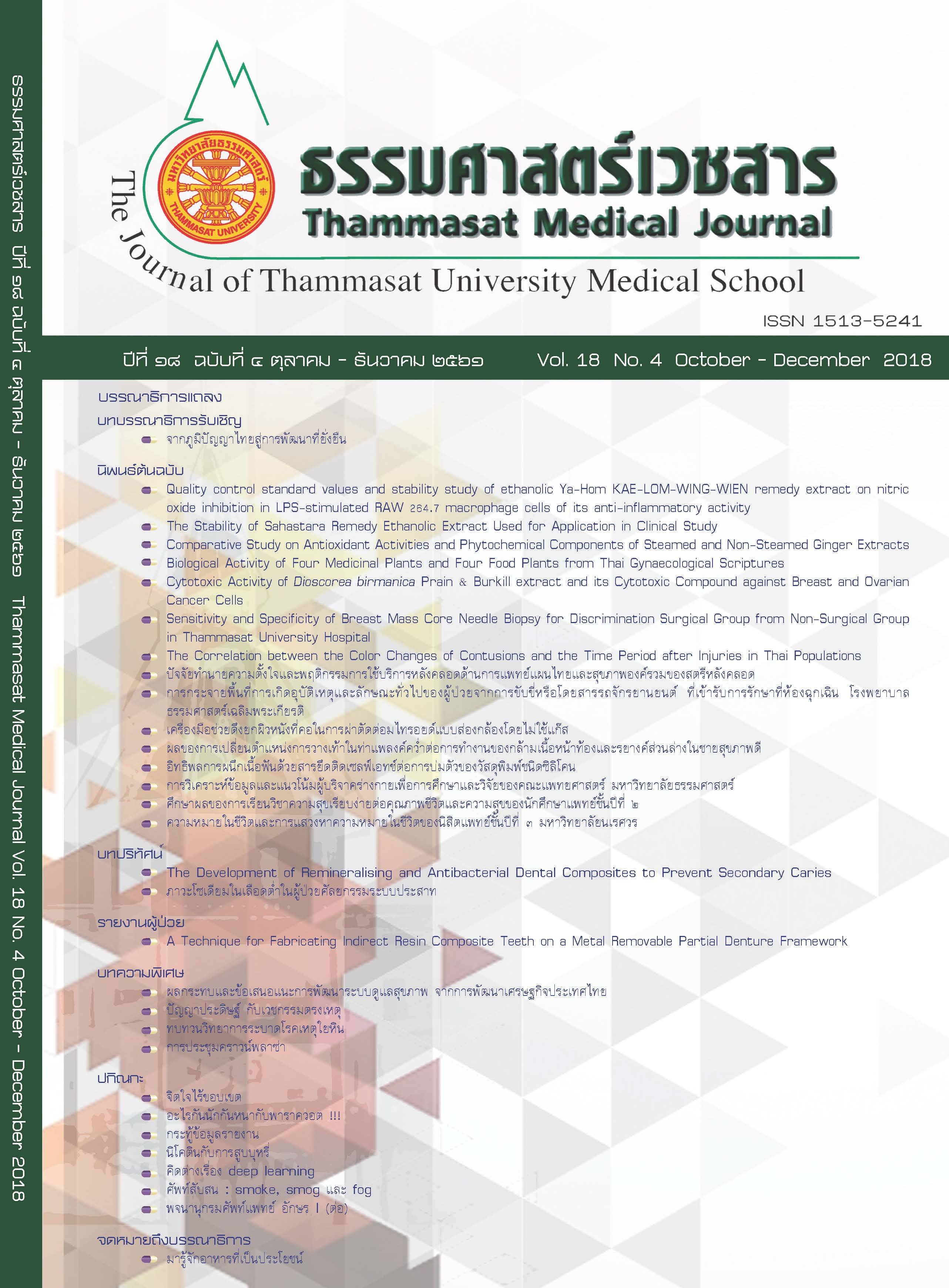Quality control standard values and stability study of ethanolic Ya-Hom KAE-LOM-WING-WIEN remedy extract on nitric oxide inhibition in LPS-stimulated RAW 264.7 macrophage cells of its anti-inflammatory activity
Keywords:
Ya-Hom KAE-LOM-WING-WIEN remedy, Anti-inflammatory, Nitric oxide inhibition, Quality control, StabilityAbstract
Introduction: Ya-Hom KAE-LOM-WING-WIEN remedy (KLWW) is included in the Thai National List of Essential Medicines A.D. 2013 and used for treating dizziness, fatigue, and sleeplessness. Quality control of plant ingredients and stability test of this remedy extract were ensured and controlled the quality of herbal medicines. In addition, standard quality values of this remedy and its plant ingredients have never been reported. The stability of this remedy extracts had also no report. The aim of this study was to investigate the quality control and stability test of KLWW on anti-inflammatory activity.
Method: Quality assessment method of remedy and its plant ingredients were determined by loss on drying, extractive value, total ash and acid insoluble ash, following Thai Herbal Pharmacopeia (THP) method. The stability testing of KLWW extract was stored over a six-month period, under 40 ± 2 °C with 75 ± 5% RH as accelerated conditions and also evaluated the anti-inflammatory activity by nitric oxide (NO) inhibitory assay in LPS-stimulated RAW 264.7 macrophage cells.
Results: The KLWW showed loss on drying value of 6.40 ± 0.20%, total ash value of 6.77 ± 0.48%, acid insoluble ash value of 0.91 ± 0.11%, and the ethanol and water-soluble extractive values of 7.64 ± 0.33 and 18.37 ± 0.74%, respectively. Stability test of the 95% ethanolic extract of KLWW on NO inhibition at days 0, 15, 30, 60, 90, 120, 150 and 180 showed IC50 values of 19.38 ± 1.13, 28.43 ± 078, 29.06 ± 1.71, 34.02 ± 0.40, 33.82 ± 0.44, 34.66 ± 2.32, 34.13 ± 1.68 and 32.04 ± 2.32 µg/ml, respectively, compared with prednisolone (positive control) with IC50 value of 0.16 ± 0.01 µg/ml.For stability study, KLWW extract lost anti-inflammatory activity after kept 15 days and the activity did not decreased any further up to 6 months.
Discussion and Conclusion: KLWW passed the standard value of THP standard in terms of loss on drying, extractive value, total ash, and acid insoluble ash. For stability study, KLWW extract lost anti-inflammatory activity after keep 15 days but it had anti-inflammatory activity because IC50 was in range 28 - 34 µg/ml. Thus, KLWW extract are stable in anti-inflammatory activity within two years.



